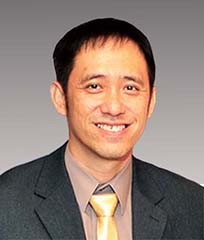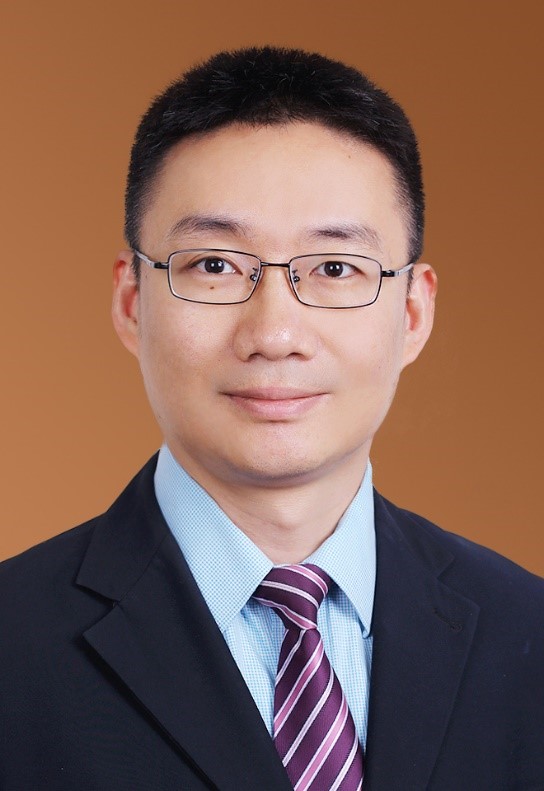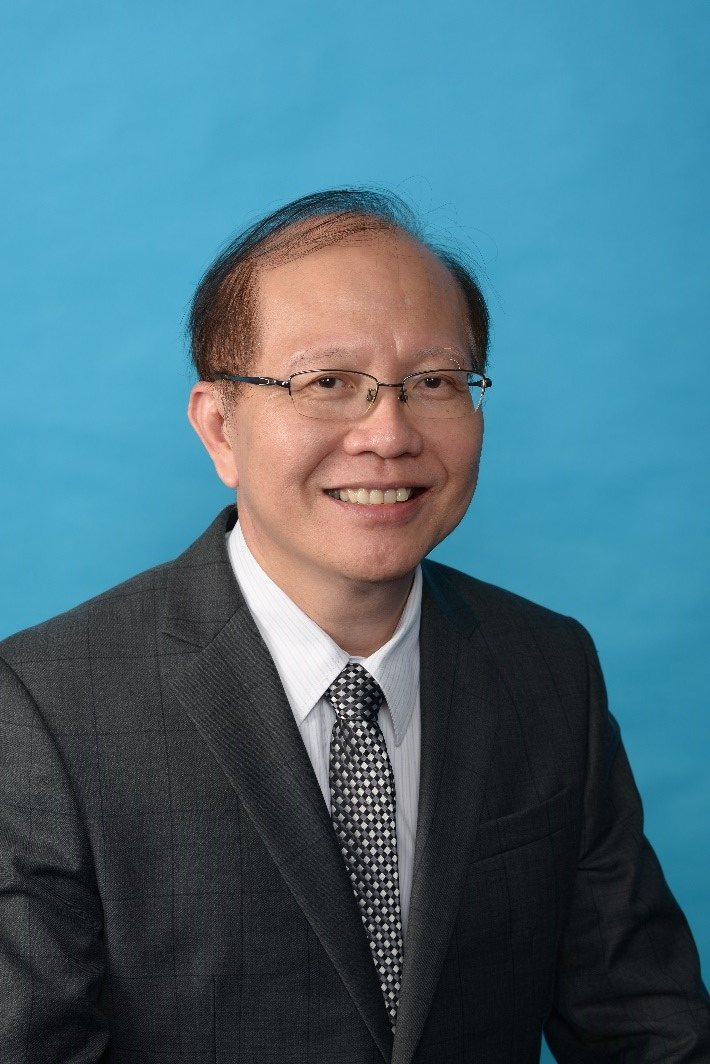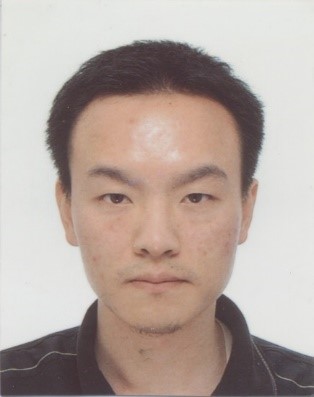“SG-NKG”智能交通物流产学研小型研讨会
报告一:Lee Loo Hay 教授,新加坡国立大学

时间:2019年4月25日9:15-10:00
地点:将军路校区365楼A0405室
报告名称:Building toward the digital twin for smart logistics operation
报告简介:
In this talk, we will introduce some new initiatives in Singapore in transforming the industry into the next generation industry, in particular in the logistics and maritime sectors. We will also present some of our latest work in developing a simulation optimization framework for digital twin for various systems, such as warehouse system and port system. This framework O2DES has the capability in incorporating optimization in the simulation, and optimizing the system parameters based on simulation output.
报告人简介:Biography
Loo Hay LEE is an Associate Professor in the Department of Industrial and Systems Engineering at National University of Singapore and was a visiting professor at the Department of Systems Engineering and Operations Research at George Mason University. Dr Lee has also been appointed as the Eastern Scholar Professor for the Shanghai Maritime University by the Shanghai Municipal Education Commission. He received his B.S (Electrical Engineering) degree from the National Taiwan University in 1992 and his S.M and PhD degrees in 1994 and 1997 from Harvard University. He has has served as the associate editor for IEEE Transactions on Automatic Control, IIE Transactions, IEEE Transactions on Automation Science and Engineering, Flexible Services and Manufacturing Journal, Simulation: Transactions of The Society for Modeling and Simulation International, the Asia Pacific Journal of Operational Research, International Journal of Industrial Engineer: Theory, Applications and Practice. He is currently the co-editor for Journal of Simulation and is a member in the advisory board for OR Spectrum. He is a senior member of IEEE, and has served as a council member in the simulation society of INFORMS. His research focuses on the simulation-based optimization, maritime logistics which includes port operations and the modeling and analysis for the logistics and supply chain system. He has co-lead a team to win the grand prize for the next generation container port challenge in 2013 by proposing a revolutionary double storey container terminal design, called SINGA Port. He is now co-lead a center of excellence for simulation and modelling for next generation port (C4NGP), and center of next generation logistics (C4NGL).
报告二:梁哲教授,同济大学
时间:2019年4月25日10:00-10:45

地点:将军路校区365楼A0405室
报告名称:Extensions to the airline fleet assignment problem
报告简介:
In this talk, we will introduce two extensions to the traditional airline fleet assignment problem (FAP). In the first extension, we consider the crew resource availability and balance in FAP. In the second extension, we model the demand-price relationship use a piece-wise linear function. We adopt the traditional time-space network model to handle these extensions. Several decomposition algorithms are proposed to solve these models efficiently. Our computational results show that the proposed solution methods can be used for mid and large scale airline companies.
报告人简介:Biography
Zhe Liang is a professor in the School of Economics and Management, Tongji University. He received his BEng from the Department of Computer Engineering at the National University of Singapore (NUS) in 2001, his Master Degree from the Department of Industrial and Systems Engineering, NUS in 2003, and his PhD from the Department of Industrial and Systems Engineering of Rutgers in 2011. His research interests are related to the design and implementation of exact and heuristic algorithms for large-scale combinatorial optimization problems in logistics and transportation. He has more than 20 cited publications, including papers that appeared in journals such as Transportation Science, INFORMS Journal on Computing, Transportation Research Part B, and others. He has been funded by the National Science Foundation of China, Ministry of Education of China, and Ministry of Science and Technology of China.
报告三:Chew Ek Peng 教授,新加坡国立大学
时间:2019年4月25日10:45-11:30

地点:将军路校区365楼A0405室
报告名称:AGV Routing and Control for Transshipment Container Terminal
报告简介:
In this presentation, we develop a framework for routing and controlling the Automated Guided Vehicles (AGVs). As the AGV routing and control are done in real time, the framework requires the solutions to be generated very fast. To address this computational challenge, the solution framework consists of two stages. The first stage determines the rough routes of the AGVs. The second stage determine the detail routings and schedules of the AGVs. As solving the detail routings and schedules require high computing resource, we decompose the port layout into submodules where each of them can be solved almost independently. The output of the first stage (rough routes) becomes an input to the second stage which solve the detail routes and schedules for real time control. Whenever an AGV completes a task, the first stage will be called to revise the rough routes of the AGVs which includes the new task which is assigned to the AGV that has completed the previous task. The new rough routes will become input for second stage to solve the detail routes and schedules. We show this framework is promising and is able to generate the detail routes and schedules very fast.
报告人简介:Biography
Dr CHEW Ek Peng received his Ph.D. in Industrial Engineering from the Georgia Institute of Technology, USA. He is currently an Associate Professor in the Department of Industrial Systems Engineering and Management at the National University of Singapore. He also holds positions as the Deputy Head (Undergraduate Studies), Director for the Centre of Excellence in Modeling and Simulation for Next Generation Ports, and Co-Director for the Centre for Next Generation Logistics. He was a Visiting Scholar and a Visiting Professor, respectively, at the Georgia Institute of Technology and University of British Columbia in 2006. His current research areas are in port logistics and maritime transportation, simulation optimization and inventory management. Some of his research works are published in journals such as Transportation Science, IISE Transactions, European Journal of Operational Research, and Naval Research Logistics. He is serving as Editor-in-Chief of the Asia Pacific Journal of Operational Research, member of the Editorial Board Editors of the Transportation Research Part B, member in the Editorial of Flexible Services and Manufacturing Journal. He has also co-edited a book in “Advances in Maritime Logistics and Supply Chain Systems’, a special issue for OR Spectrum on “IT-based planning and control of seaport container terminals and freight transportation systems” and three special issues for Flexible Services and Manufacturing Journal on “Maritime Container Logistics and Onshore Transportation Systems (Part 1, Part 2 and Part 3)”. He and Dr. Lee Loo Hay has recently led a team of multidisciplinary researchers and experience practitioners to win the Next Generation Container Port Challenge with a grand prize of US$1 mil by proposing a revolutionary double-storey container terminal, called the SINGA port.
报告四:孙卓教授(大连海事大学)
地点:将军路校区365楼706 室

时间:2019年4月25日 13:00-13:40
报告名称:A LEGO based hardware-in-the-loop container terminal simulator
报告简介:
Container terminals are getting bigger and busier. Managing their operations becomes a challenge. Software simulators are widely used but they bear difficulties in use and development. In this study, we introduce the LEGO hardware as the counterpart of the software simulator to provide a touchable and modularized interface. Users can easily customize different parts of the simulator in the prototyping phase. Experiments show that it can facilitate teaching, training and research processes.
报告人简介:Biography
Sun Zhuo received the dual bachelor degree in civil engineering and computer science from Dalian University of Technology in China in 2003, the master degree in hydraulics from DongA university in South Korea in 2005 and the doctor degree in urban planning from Nagoya University in Japan in 2008. He conducted his postdoctoral research in the Centre for Maritime Studies of National University of Singapore from 2009 to 2012 and then joined the Department of Logistics of Dalian Maritime University as a professor. His research interests are in the areas of shipping network design, port planning. He participated in several domestic and international large-scale scientific research projects. More than twenty academic papers have been published in prestigious journals such as Transportation Research Part B, Transportation Science, European Journal of Operational Research, Transportation Research Part E, Simulation, and Advanced Engineering Informatics. He won the Gold Prize for the “Next Generation Container Port Challenge” in the Singapore in 2013 and the third winner of the “The Last Mail Delivery” algorithm competition organized by Alibaba, Hong Kong University of Science and Technology, and INFORMS in 2016.
报告五:李浩斌(新加坡国立大学)
地点:将军路校区365楼706 室
时间:2019年4月25日 13:40-14:20

报告名称:Development of Smart Digital Twin via O²DES Framework
报告简介:
The smart digital twin shall be developed in all the four dimensions as follows. Firstly, the Connectivity indicates the level of communication with its physical counterpart; then, the Visibility indicates the ease of perception for human beings; in addition, the Granularity that indicates the detail level of the model; and more importantly, the Analyz ability that enable a digital twin with the smartness to support decision making. O²DES (object-oriented discrete-event simulation) framework is proposed by our team for this purpose. This talk will give an overview on how the O²DES framework complies with the development of the smart digital twin on these four dimensions.
报告人简介:Biography
Dr. LI, Haobin is a Research Assistant Professor with the Department of Industrial Systems Engineering and Management, National University of Singapore. He is a key researcher in the Centre of Excellence for Simulation and Modelling for Next Generation Port (C4NGP), and Centre of Next Generation Logistics (C4NGL), with strong research focus on the discrete-event simulation modelling and stochastic simulation optimization. The application of his research studies includes the next generation logistics, maritime port optimization, healthcare, and smart manufacturing.
Dr. Li received his B.Eng. degree with 1st Class Honors in June 2009 from the Department of Industrial and Systems Engineering (ISE) at National University of Singapore (NUS), with minor in computer science; and Ph.D. degree from the same department in February 2014. He has been working as post-doctoral research fellow in the same department after receiving his Ph.D. degree and until joined A*STAR Singapore as a scientist in July 2015.
During his Ph.D. and post-doctoral studies, Dr. Li has successfully 1) developed MO-COMPASS, a fast and convergent algorithm for multi-objective stochastic simulation optimization; 2) invented GO-POLARS, the stochastic sampling scheme that incorporates gradient information for accelerating simulation based optimization; and 3) developed O2DES.Net, an open-structured framework for discrete-event simulation modeling and integrated optimization. He has published 13 journal / conference papers on his developments and their various industrial applications; the other 5 journal papers are under reviews and several working papers are prepared in progress.
Since 2012, Dr. Li has been involved as the main contributor in more than 10 academic research / industrial projects funded by various agencies. Recently, his focus is on the real-time data-analytics and stochastic simulation optimization with the IoT sensors and high-performance computing infrastructure, aiming to provide decision support for the next-generation production control and manufacturing management.
学院地址:江苏省南京市江宁区将军大道29号
邮政编码:211106
版权所有:bat365中文官网(体育)官方网站IOS/安卓/手机APP下载 ALL RIGHTS RESERVED 苏ICP备05070685号

